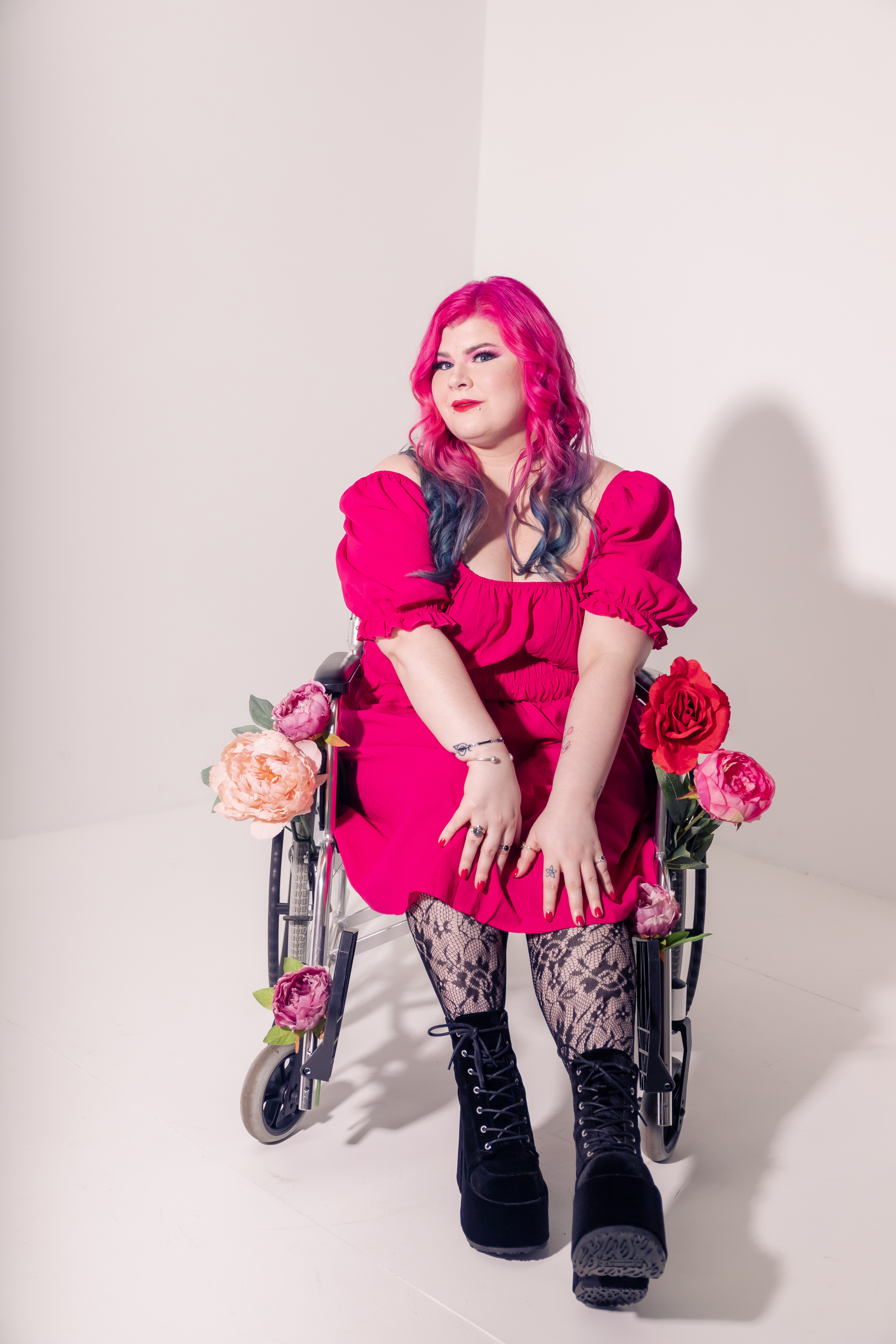Period pain forced her to miss school, events and work, but it was only when Zoe Simmons broke her wrist that she realised what pain she'd endured for 10 years wasn't normal.
The pain medication she was given as a one-off for the broken bone gave her far more relief for the consistent abdomen pain than her wrist.
Despite struggling for years, Simmons hadn't realised she needed help in that area - she believed what she was experiencing month-to-month was simply what everyone else went through.
Because that's what she'd always been led to believe.
READ MORE: 'Women are forced to suffer in silence and just get on with it' - Should period leave be instated?

Simmons, now 27, said she felt stigma right back to when she first got her period in school at 12, when she was told at sick bay to "get over it" and that pain was a normal part of life.
The Melbourne woman only started investigating with doctors after the broken wrist at age 22, making her one of many Australians who said their period was impacting their day-to-day life.
A massive 40 per cent of menstruating Australians said their period affected their ability to work, and 30 per cent said it impacted their ability to participate socially, a recent survey found.
Simmons said her period pain is incapacitating and occurs throughout the month.
"Pain really just changes your life," she told 9news.com.au.
"Your 20s are supposed to be the best years of life but my life has just been turned upside down."
Have you got a story? Contact Serena at serena.seyfort@nine.com.au
She has been to numerous doctors over the last five years - some of which just told her "period pain is normal".
"There is a societal view that it's something we should just get on with as (periods are) a fact of life for females," gynaecologist Dr Talat Uppal said.
The obstetrician said stigma was a key reason many women end up silently ending with menstrual issues and has appealed to healthcare professionals to take a proactive approach to "empower and support" women who share their symptoms.
"It's important that Australians can speak to their healthcare professional to find the right option for them," she said.
A gynaecologist recently told Simmons she likely suffers adenomyosis, a condition where endometrial tissue exists within and grows into the uterine wall.
READ MORE: The scams to watch out for this Valentine's Day

But this is not a certain diagnosis, despite Simmons having several tests and investigative surgeries.
The writer has tried "pretty much everything" - from pain relief, to natural therapies, changing diet and herbal teas - but the period pain has still regularly left her immobile and in tears.
On top of her period-related pain, Simmons also has fibromyalgia, a disorder that "causes widespread pain and tenderness in the body", along with fatigue and concentration issues, according to the Victorian government's Better Health.
The combination of the two issues means she uses a wheelchair or walking aid to get around at times.
She is currently using a goserelin implant for the pain.
The hormone therapy can be used for endometriosis or menorrhagia, also known as heavy menstrual bleeding.
However, she said her doctor had told it was not recommended it be taken for extended periods because of the side affects it can have.
What is a normal period?
No one's menstrual cycle will be exactly the same, but flow should occur every 21 to 35 days and last between two and seven days, according to the Mayo Clinic.
"Your menstrual cycle might be regular — about the same length every month — or somewhat irregular, and your period might be light or heavy, painful or pain-free, long or short, and still be considered normal," the clinic states.
"Within a broad range, "normal" is what's normal for you."
By tracking how long yours lasts, the heaviness of your flow, whether you are experiencing abnormal bleeding between periods, paid or changes in mood or behaviour, you can get a better gauge of your normal.
READ MORE: Lingering horror from devastating tragedy 40 years on

You are advised to seek medical help if you experience any of the following issues:
- Severe pain
- Periods suddenly stop for more than 90 days and you're not pregnant
- Periods become erratic after having been regular
- Periods go for more than seven days
- Bleeding is more heavy than usual and soaks through more than one pad or tampon every hour or two
- Periods are less than 21 days or more than 35 days apart
- Bleeding occurs between periods
Sign up here to receive our daily newsletters and breaking news alerts, sent straight to your inbox.
